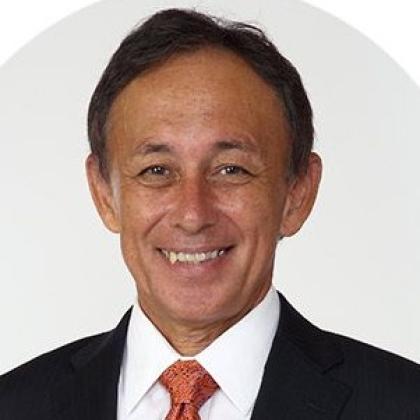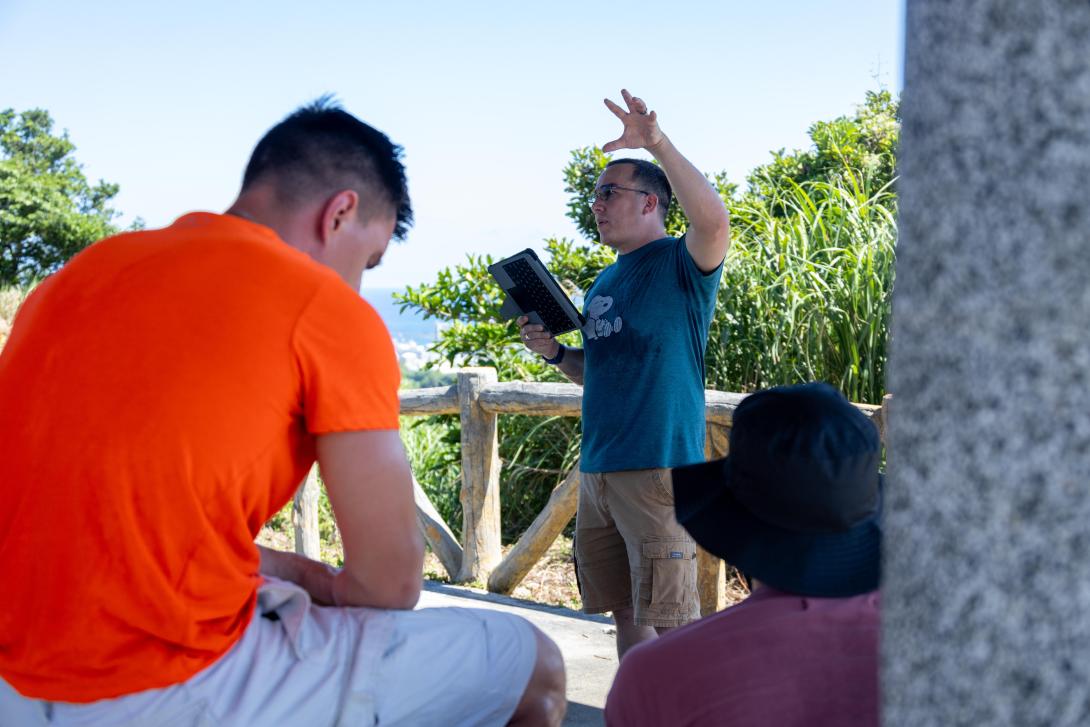All Quiet on the Eastern Front
Okinawa’s local government sees no cyber attacks, and its systems are threat free, according to the prefecture’s governor, Denny Tamaki.
“Within Okinawa, in the actual government, we do not acknowledge any kind of cyber terrorism or attack,” Tamaki told journalists.
At a national level, analysis points in another direction.
“Japan has taken a leading role to develop cyber resilience across the region—including with nontraditional partners—to counterbalance threats from China, North Korea and Russia,” wrote Julia Voo, senior fellow for cyber power and future conflict at the International Institute for Strategic Studies, a DC-based think tank.
Despite concerns about system errors, such as airport operations suspensions and minor financial disruptions, the Okinawa prefecture has not yet taken any specific actions to address cyber threats, according to its governor.
Furthermore, there has been no directive from the national Japanese government to develop countermeasures, nor has there been a dedicated budget allocated to tackling potential cyber attacks.
“We have not received any instructions from the national government, our Japanese government, to come up with some defensive or some preventive systems to counter for cyber attacks,” Tamaki said on Tuesday, addressing a SIGNAL Media question at an event organized by George Washington University's Project for Media and National Security.
Local law enforcement also did not take significant measures for cybersecurity, according to Tamaki. While he acknowledged that the issue of cyber threats may become more pressing in the future, Tamaki explained it is not currently considered an urgent concern by either local or national authorities—countering several pronouncements by Tokyo in this respect.
The most recent communication from the Japanese Ministry of Foreign Affairs was last week, expressing concern about North Korea’s actions in cyberspace.
Following a trilateral meeting on this topic with South Korea and the United States, Japan’s national authorities issued a statement.

We do not acknowledge any kind of cyber terrorism or attack.
“At this working group, the three countries reiterated their concern regarding North Korea’s illicit cyber activities that fund its unlawful weapons of mass destruction and ballistic missile programs,” the release stated.
The speaker also addressed the issue of Bell Boeing V-22 Osprey flight operations. The Japanese government has assured the Okinawa prefecture that the operations are safe, but local authorities and residents remain unconvinced due to insufficient information, Tamaki told journalists. Despite these assurances, the Okinawa government has requested a suspension of Osprey flights until further clarity is provided.
On the presence of U.S. service members there, sexual assaults by troops stationed in the island were presented as a major concern for the population.
The speaker concluded by discussing Okinawa’s unique position in international diplomacy and its efforts to foster peace and security in the East Asian and Pacific regions.
“We have established a new division in the Okinawa prefectural government under the name of Peace and Subnational Diplomacy Promotion Division to enhance peace and stability in our regions through dialogue,” Tamaki said through a translator.




Comments